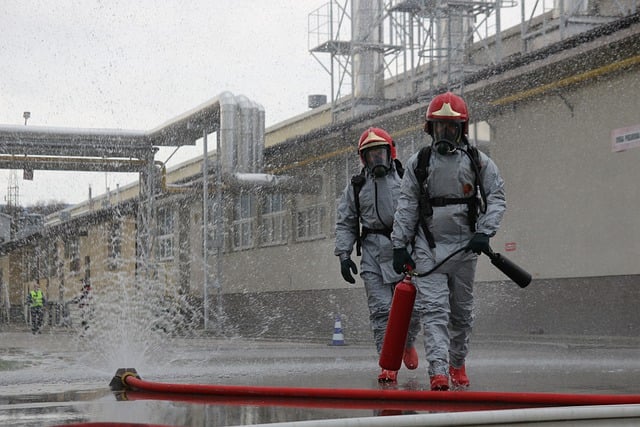Discover Paid Oil Rig Certifications
The offshore oil and gas industry offers unique career opportunities for individuals seeking challenging and potentially lucrative work. However, entering this field typically requires specific certifications and training. This article explores certification programs related to oil rig work, including options that may provide compensation during the training process.

What certifications are needed for oil rig jobs?
Working on an offshore oil rig requires a variety of certifications, depending on the specific role and responsibilities. Some common certifications include:
-
Basic Offshore Safety Induction and Emergency Training (BOSIET): This foundational course covers safety procedures, emergency response, and survival techniques for offshore environments.
-
Helicopter Underwater Escape Training (HUET): Essential for workers who travel to offshore rigs by helicopter, this training prepares individuals for emergency water landings.
-
Well Control Certification: Required for many drilling positions, this certification focuses on preventing and managing well control incidents.
-
Rigger Training: Necessary for roles involving lifting and moving equipment, this certification covers safe rigging practices.
-
Offshore Crane Operator Certification: For those operating cranes on oil rigs, this specialized certification is often mandatory.
It’s important to note that certification requirements can vary by country, employer, and specific job role. Prospective workers should research the exact requirements for their intended positions and locations.
How can one obtain oil rig certifications?
Obtaining oil rig certifications typically involves completing specialized training courses offered by accredited institutions. The process generally includes:
-
Researching certification requirements for desired positions
-
Locating approved training providers
-
Enrolling in and completing the necessary courses
-
Passing required examinations
-
Maintaining certifications through periodic renewals
Many certification programs combine classroom instruction with hands-on practical training. Some courses may be available online, while others require in-person attendance due to the nature of the skills being taught.
Are there certification programs that offer compensation?
While many certification programs require upfront payment from trainees, some opportunities exist for individuals to receive compensation or financial assistance during the certification process. These may include:
-
Apprenticeship programs: Some companies offer apprenticeships that combine on-the-job training with formal education, potentially including certification courses.
-
Sponsored training: Certain employers may sponsor employees or potential hires to obtain necessary certifications, covering the costs of training and sometimes providing a stipend.
-
Government-funded programs: In some regions, government initiatives may provide funding or subsidies for individuals seeking training in industries like offshore oil and gas.
-
Union-sponsored training: Labor unions in the oil and gas sector may offer training programs or financial assistance for certifications to their members.
-
Scholarships or grants: Some educational institutions or industry organizations offer financial aid for individuals pursuing certifications in the oil and gas field.
It’s crucial to note that while these options exist, they may be competitive and not universally available. Additionally, any compensation or financial assistance during training does not guarantee employment upon completion.
What are the costs associated with oil rig certifications?
The costs of obtaining oil rig certifications can vary widely depending on the specific certifications, training providers, and locations. Here’s an overview of potential costs for some common certifications:
| Certification | Typical Cost Range | Duration |
|---|---|---|
| BOSIET | $1,000 - $2,500 | 3-5 days |
| HUET | $500 - $1,500 | 1-2 days |
| Well Control | $2,000 - $5,000 | 5-10 days |
| Rigger Training | $500 - $2,000 | 2-5 days |
| Offshore Crane Operator | $1,500 - $4,000 | 5-10 days |
Prices, rates, or cost estimates mentioned in this article are based on the latest available information but may change over time. Independent research is advised before making financial decisions.
These figures are estimates and can vary significantly based on factors such as location, training provider, and course content. Additional costs may include travel, accommodation, and study materials.
How can one find legitimate certification programs?
To find reputable certification programs for oil rig work:
-
Research industry-recognized certifications required for desired positions
-
Look for training providers accredited by relevant industry bodies
-
Check with potential employers about their preferred certification programs
-
Consult professional associations in the oil and gas industry for recommendations
-
Verify the credentials and track record of training institutions
It’s essential to be cautious of programs that make unrealistic promises about job placement or earnings potential. Legitimate certification programs focus on providing skills and knowledge rather than guaranteeing employment outcomes.
In conclusion, while certification programs for oil rig work can be an important step towards a career in the offshore oil and gas industry, it’s crucial to approach the process with realistic expectations. Prospective trainees should thoroughly research certification requirements, costs, and potential financial assistance options. Remember that obtaining certifications, even through programs that offer some form of compensation during training, does not guarantee immediate employment in the field.




